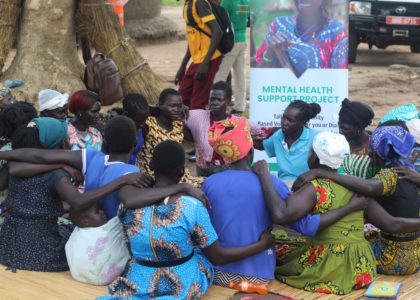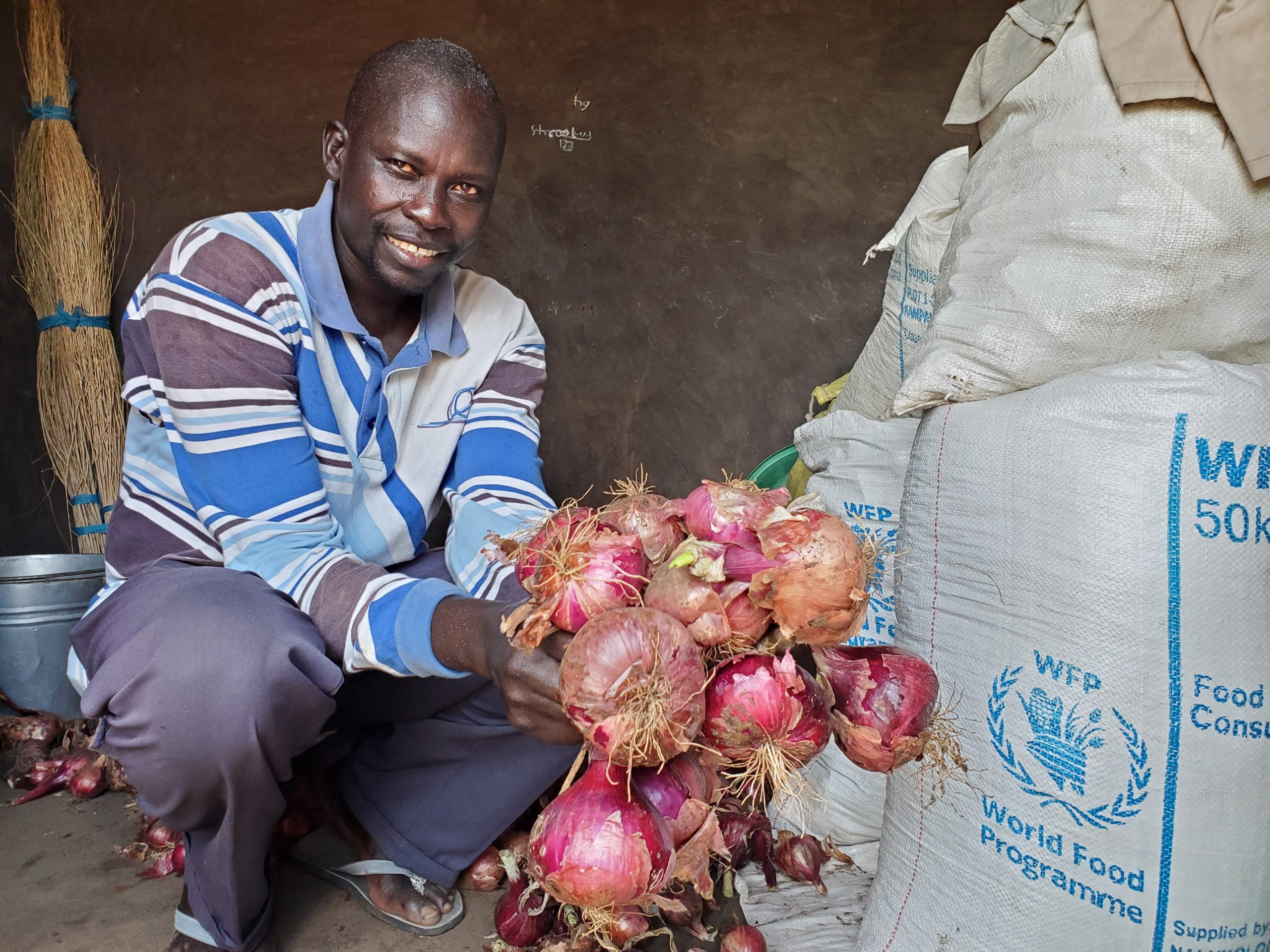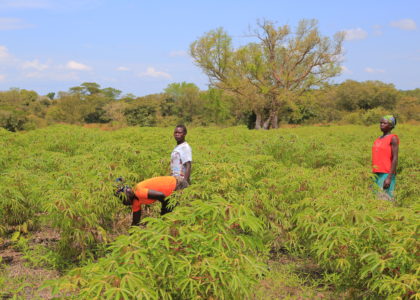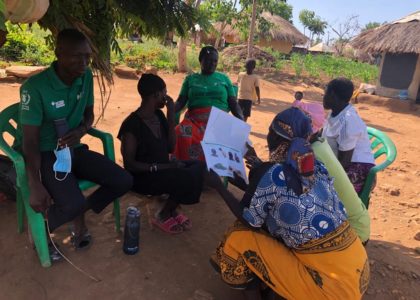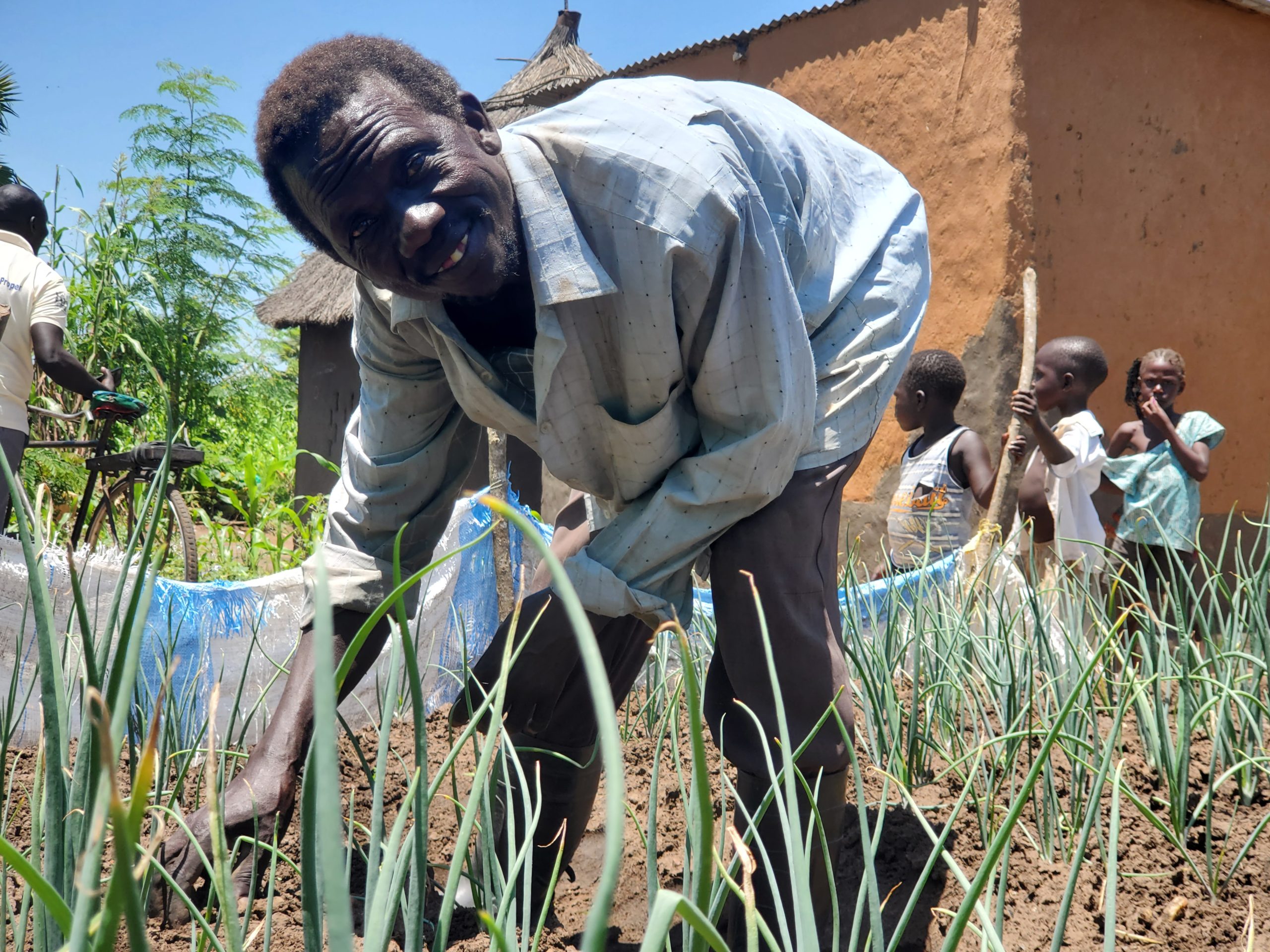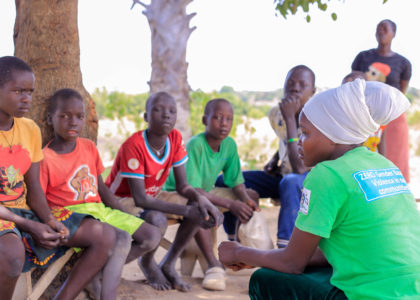
AFOD staff during a dialogue with
Family members of Endreo Gladys
Although Uganda has made remarkable strides in improving the health of its populations, some of the key health issues especially regarding Adolescent sexual reproductive health remain wanting. For example, although most adolescents in Uganda have heard about many aspects of sexual and reproductive health, many have limited knowledge and accessibility to youth friendly and affordable ASRH services thus adolescents are not adequately utilizing SRH services. Furthermore, the ministry of health states that currently 25% of Ugandan teenagers become pregnant by the age of 19 and about 49% are married off before their 18th birthday. Prevalence of child marriages is highest in Northern Uganda, at 59%, followed by Western region (58%), Eastern region (52%), East central (52%), West Nile (50%), Central (41%), South west (37%), and lowest in Kampala (21%). (UNICEF Uganda, 2015)
Endreo Gladys, 16 years’ old who was schooling in Fuda primary school, primary five got married to a man of 20 years of age, living in Boroli, so when the school administration realized, they immediately reported to AFOD who made a follow up with the parents. On inquiring why, she got married, the parents explained that they can’t afford to pay the school requirements and they are unable to support her education. Due to AFOD’s continued pursuance of the case, the girl decided to give up her marriage and resume school.
According to a baseline assessment conducted by AFOD in April 2016 on availability and accessibility of ASRH services in Adjumani, results indicated; 100% of health managers reported no availability of ASRH planning tools, 83.6% reported no existence of ASRH friendly services, 100% said information on ASRH are not displayed and youth are not involved in planning, implementation and monitoring of ASRH services. The study found that the most pressing problems of the young people were: Sexually transmitted infections, early pregnancy due to lack of information on sex education and access to reproductive health services, lack of sanitary pads for the girl child, knowledge on menstrual hygiene management and high poverty levels among both the host communities and refugees in Adjumani district.
AFOD identified schools as a key entry point for delivering key messages to create immediate impact with full participation and involvement of the teachers, pupils and their parents. AFOD has trained health workers to support ASRH services in health facilities and trained teachers to support adolescents in schools. AFOD conducted community dialogue meetings with participants totaling to 2,151 refugees and 1,522 hosts. All were adolescents who dropped out of schools. In schools, AFOD had 12 school health talk visits and interacted with 2,500 participants mostly in upper primary.
In the case of Gladys, AFOD involved the Local council leaders, community development officer and cultural leaders about the girl’s situation, both parents were met and they agreed that the girl should go back to school, some scholastic materials were bought for her and she resumed studies immediately. The 16-year-old girl is back to school and AFOD keeps making follow ups to assess her progress, this success is attributed to AFOD’s staffs, school administration especially senior woman teacher, local council leaders, community development officer and some community members who played a key role in ensuring that the girl gets back to school. In one of the follow up interaction with the girl after two months of schooling, she remarked “school is key to my future because I have seen many girls in vocational skills training and I hope to pursue the same”

A follow up with the girl in school by AFOD

AFOD staff Meeting the girl in school.
As a result of AFOD’s intervention; many school dropped-outs including married /pregnant adolescents mainly from P.5-P.7 were able to return to schools they had earlier on abandoned due to; pregnancy or early marriage. Through our tireless efforts, 4 married girls are among the candidates now sitting for their P.L.E in Adjumani. The parents and teachers reported that Gladys is now working hard both in school and at home and she has become a role model in school and community, she has joined HIV/AIDS club in school educating both the school and community on HIV/AIDS, Hepatitis B transmission and prevention.
In addition, demand and uptake of RH services for the adolescents have risen up in all the targeted 8 health facilities in refugee settlements in Mungula, Mireyi and host areas.
AFOD is continuously following up on cases of early marriages in the communities both in refugee settlement and host communities because it has been realized that there are environmental factors which makes young girls to get married at an early age.
Monthly sexual reproductive health education is conducted in schools with support from AFOD where SRH clubs have been formed.
In spite of the above achievements, AFOD is faced with financial limitation to sustain the gains registered so far, and to scale-up interventions to reach more youths and adolescents both in schools and out of schools linking them with skill trainings and livelihood opportunities for their own well-being.


